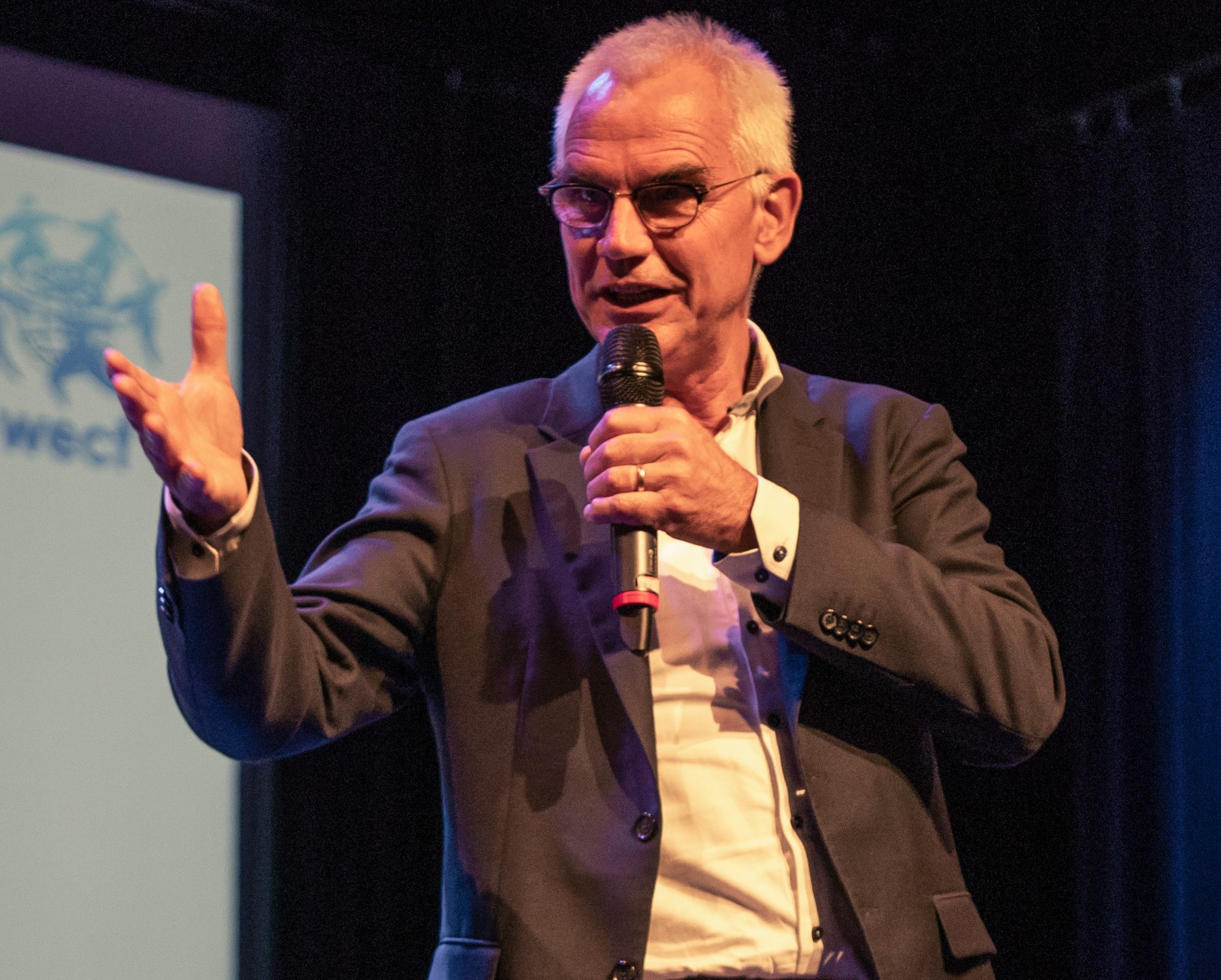
Kristof Franse about the communication of GGD GHOR Netherlands during corona times: “How do you become a well-oiled machine on a subject that can only be predicted or controlled to a limited extent?”
The corona crisis has had a major impact on the work of many people. This is also the case with Kristof Franse, Manager Communications & Public Affairs at GGD GHOR Netherlands. The corona crisis changed his role within his growing communications team, among other things. Kristof told us about the changes in the communications department, the development of the role of the GGD and the challenge of forging a team in times of corona.
How did your work change during the corona crisis?
“We went from being relatively sheltered to being fully in the spotlight, with all the consequences that entails. Everything you do is suddenly under a magnifying glass. You are suddenly in extremely high demand by all the media. With the 25 GGDs, our members, who are suddenly all under the same magnifying glass and who are also looking for perspectives for action. The connection with our members has become much clearer and stronger in recent months. We have an app group with more than a hundred GGD communication colleagues where we communicate non-stop. That wasn't there before corona. That connection has completely changed, which I think is very positive.
GGD GHOR Netherlands is now a contractor for the Ministry of Health, Welfare and Sport. But basically we represent the interests of the independently operating GGDs. The perception is often that we are the holding company and the GGDs are branches, but that is not the case. They are autonomous organizations, strongly connected to their own region. We are now coordinating a number of large assignments on behalf of the GGDs. We organize the national shell for source and contact research, the corona call center for testing appointments, we are involved in the development of the app and the XL test streets and we will soon also play a role in vaccinations. Because some things cannot be organized at the level of an individual GGD. So on the one hand our role has become incredibly different, on the other hand our core business has been connecting GGDs to a national level for eighty years. This is now happening on a completely different scale and is much more visible, but it is not new to us.”
How do you, as a communications department, deal with all these rapid developments?
“At first I had seven people in my team. In a communications department you are usually a cooperating foreman, so you just roll along. Being a manager is not a full-time job. So I entered the corona crisis with that approach. We started with two people on the subject and more and more were added. Pretty soon we were all on the subject and I was still the cooperating foreman. My main learning point is that I should have created overcapacity right at the start and I should have taken myself out of the operation. So that there is someone within the team who keeps an overview of the subject and keeps a distance. Now we have twenty people in the team, a super good team that I am very proud of. There are people on my team who are all much better at what they do than I am. I enjoy seeing that we are increasingly doing the right things together. And I am no longer a cooperating foreman, but a manager of the team and try to keep an overview so that we do the right things.”
How has your department prepared for the second wave?
“The second wave came much earlier than we thought. We struggled to get to the summer, which was hard work: complicated topics and everything was new. We started the summer together with the idea that we would get a few weeks of relative rest, so that we could refuel and start fighting again in the second wave. But the second wave came so quickly that there was actually no peace. What we did take with us, and I think this is very important, is role awareness. You are in a partnership with, among others, the RIVM and the Ministry of Health, Welfare and Sport. And you find yourself in a situation where it has to be clear what everyone is talking about. In terms of communication, I think it is important and good that we have started to focus more sharply on this, including together with our new chairman Andre Rouvoet. What are the GGDs responsible for and what not. Another difference is that we have more people in the team and get things done with more quality. Also because we now simply know more and have more figures. So much was still unknown in the first wave.
Infectious disease control has been trial and error for 100 years and that is still the case. As a society we think that everything can be planned and controlled, that is the world we live in. And then suddenly a virus comes along and it doesn't stick to it. That's complicated. And that makes it difficult to be a well-oiled machine on a subject that can only be predicted or controlled to a limited extent.”
Finally, what has been your biggest insight lately?
“When I look at my own team, at those thirteen new people, I may have physically seen them all at least once. Furthermore, we see each other digitally. And we have to form a team to complete that enormous job and work hard. And what makes all those new people feel part of the team? For me it is still on a small scale with those thirteen people. But if you look at that on a large GGD scale, we had to attract thousands of people who are also part of our team. But with the speed at which this happens and the amount of people, it is difficult to really forge a team. While they are all potential ambassadors of the GGD, so you really want that. And you see that politicians and the press are shouting: add some more people. But even if money is not the issue, you ignore the fact that you can employ those people, but that you also have to find common ground together to get that enormous job done. I see that as one of the major communication challenges. That we will form a large GGD team with all these new people. These people are all potential ambassadors of the GGD and perhaps also potential colleagues after corona.”



